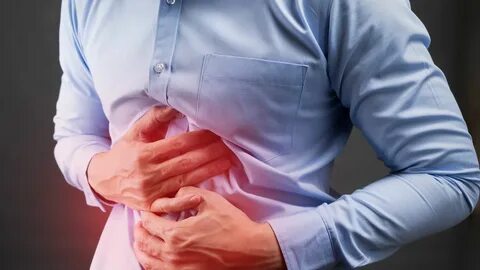Gastritis is the general term used for a group of conditions that have one factor in common: inflammation of the stomach lining.
It might occur suddenly as acute gastritis or appear gradually over time as chronic gastritis. Given below are all the details of the symptoms, causes, diagnosis, and treatment of gastritis.
Common Symptoms of Gastritis
The symptoms of antral gastritis or gastritis vary from one individual to another. In fact, there are absolutely no symptoms in some cases. The most common symptoms of gastritis are:
- Recurrent upset stomach or nausea
- Abdominal pain
- Abdominal bloating
- Vomiting
- Gnawing or burning feeling in the stomach at night or between meals
- Hiccups
- Indigestion
- Vomiting blood or coffee ground-like material
- Black and tarry stools
- Loss of appetite
When should you see a doctor?
Almost everyone suffers from an occasional bout of stomach irritation and indigestion. However, most instances of indigestion are pretty short-lived and do not need medical care.
It is important to see a doctor in case you have been experiencing symptoms and signs of stomach irritation for at least a week or more.
Let your doctor know in case you have stomach problems after taking over-the-counter or prescription drugs, particularly any pain reliever or aspirin.
In case you’re vomiting blood or notice blood in the stools or get stools that look black, talk to your doctor immediately to find out the reason.
Causes of Gastritis
Antral gastritis can be brought about by irritation from excess alcohol use, stress, chronic vomiting, and the use of medicines like aspirin or any anti-inflammatory drugs. One might also suffer from gastritis for the following reasons:
- Helicobacter pylori: It is the type of bacteria that stays in the mucous lining of your stomach. Lack of timely treatment can make this infection lead to ulcers, and even stomach cancer in some people.
- Bile reflux: The backflow of bile in the stomach right from the bile tract connecting the gallbladder and the liver.
- Infections: Viruses and bacteria might cause severe infections.
When gastritis is not treated properly, it might cause excess blood loss and might even increase the risks of getting stomach cancer.
Diagnosis of Gastritis
In order to diagnose the condition, the doctor is going to go through your family and personal medical history, carry out a complete physical evaluation, and recommend one of the given tests:
Upper endoscopy:
Endoscope refers to a thin tube that is fitted with a small camera. It gets inserted through the mouth and right down in the stomach to check out the stomach lining. Then, the doctor will run checks for inflammation.
They might perform a biopsy, which is a procedure where a small tissue gets removed and sent to the laboratory for assessment.
Blood tests:
The doctor might carry out different blood tests like checking the number of red blood cells to figure out if you’ve anemia (a sign that you don’t have sufficient red blood cells).
Blood tests might also help in screening for H. pylori or Helicobacter pylori and pernicious anemia.
Stool test (Fecal occult blood test):
The test is about checking for the presence of blood in the stool, which is a possible indication of antral gastritis.
Effective Treatment for Gastritis
Usually, the treatment for gastritis involves:
- Taking antacids or any other drug (like H-2 blockers or proton pump inhibitors) helps to lower stomach acid
- Avoid spicy and hot foods
- For the kind of gastritis that is caused by Helicobacter pylori infection, the doctor is going to prescribe of complete regimen of antibiotics, along with an acid blocking drug (for heartburn)
- B12 vitamin shots are administered when pernicious anemia causes gastritis
- Elimination of irritating foods from the diet like gluten from wheat and lactose from dairy
After the disappearance of the underlying problem, the gastritis goes away as well.
Home and Lifestyle remedies
You might get some relief from the signs and symptoms of gastritis from the following home remedies and lifestyle changes.
- Go for more-frequent, smaller meals: If you are prone to experiencing indigestion, have small meals frequently to ease out the impact of stomach acid.
- Avoid foods causing irritation: You need to stay away from the kind of food that irritates your stomach, particularly those that are fatty, fried, acidic, or spicy.
- Avoid alcohol: Alcohol might end up irritating the mucosal lining of the stomach
- Changing pain relievers: In case you take the kind of pain relievers that raise the risk of gastritis, talk to your doctor about other options involving acetaminophen (such as, Tylenol). This particular medication is not that likely to increase your stomach problem.
The endnote
Most people experiencing gastritis tend to improve once the treatment begins. However, it is important to see a doctor in time and seek proper treatment. Do not ignore the symptoms and get an appointment right away. If you have any concerns, feel free to ask experts at Apollo Hospitals.

